It’s been more than a month since the Russian legislative elections of September 18, 2016. You will be excused if you passed them by, all the more so that on first glance, not much changed in Russian politics.
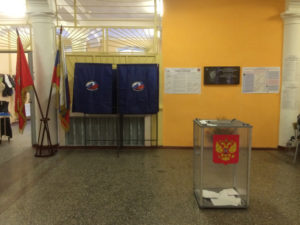
The Duma will be headed by the even more dominant United Russia, which returned its constitutional majority and will hold 343 out of 450 seats. The other major parties in the Duma haven’t changed, they include: the Communists, Liberal Democrats, and A Just Russia. No opposition parties passed the 5% threshold, and only three delegates from outside the four major parties will be present. No surprises here.
We can write off the results, and the elections themselves, as scripted, stage-run and thus illegitimate. However, in doing so, we would miss two surprising aspects about Putin’s Russia.
- United Russia is here to stay, despite economic problems
First of all, it’s clear that United Russia is the only party that is capable of mobilizing a significant number of people to express their civic responsibility. Like it or not, but in this iteration of Russian politics (with all of its flaws), the majority of voters are happy to put their trust in Medvedev’s party, despite Western sanctions and a deteriorating economy.
Yes, the playing field is uneven, yes, media coverage is skewed, yes, some workers are pressured to vote for the ruling party by their factory bosses, etc. This undoubtedly undermines the democratic nature of the elections. However, and notwithstanding, 29 million supporters of United Russia voted for the ruling party, and a total of 45 million voters voted for the same four pro-Kremlin parties which comprised the previous Duma. Out of the 52.7 million voters on election day, the vast majority clearly voted for a continuation of the status quo.
The signal is simple: United Russia is here to stay.
2. Election fraud did not determine the end result
All of the above would amount to nothing if the voting numbers were illegitimate. Unfortunately, this doesn’t seem to be the case. Election fraud wasn’t near the levels seen in 2011, and it had a local, rather than systemic character.
As in 2011, thousands of well-trained, dedicated, independent observers worked at polling stations across the country to watch for fraud. I was one of them, sent by one of the democratic opposition parties. Along with five other observers, representing different civic groups, I was staged at a polling station from before voting began to long after the ballots were counted. We scrutinized every single step in the election process, including: the number of ballots in the building, the number of distributed ballots, the number of voters, the ballot boxes themselves, the impartiality of the voting area, the counting of every individual ballot, etc. etc. It was a long, 20-hour workday. At our station, no ballots were tampered with. There were no obstructions. The only violation we could find was at the newspaper stand in the corner of the room—a tiny ad of one of the political parties was on the second to last page…
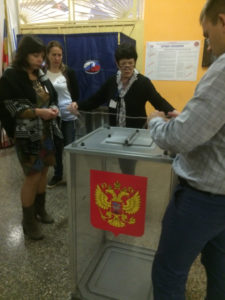
All the figures added up in the end. The result: A confident victory for United Russia. Pretty surprising, given that the district we were in is in the very center of one of the most liberal cities in the country—St. Petersburg. Even in this district, United Russia won a majority without vote tampering.
Granted, there were plenty of violations across the city and country. On the live-feed of the observers, we saw instances of ballot-stuffing, bussing of voters, obstruction of observers, etc. Many of these incidents were recorded by the webcams set up at every polling station. Analysts recorded statistical anomalies in voter distribution in several regions, such as Bashkiria, Tatarstan, Chechnya, Voronezh, Saratov, Belgorod, etc., which could have impacted United Russia’s total quite a bit. However, even these analysts predict that United Russia would have won at least 40% of the vote, without the suspicious districts. Voter fraud skewed the result, but it did not make the result. Obviously, other factors determined the election.
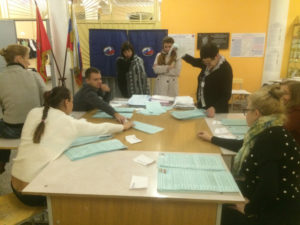
Where’s the other 50 million?
What is the explanation for the confident victory of the ruling party, in the midst of falling living standards and economic downturn, if it isn’t explained by voter fraud?
On the one hand, it is the result of a certain consolidation around the leader and the ruling party in Russia. The media cultivates this image, as well as the perception of foreign ill will, exemplified by events such as the economic sanctions of the US and EU, and the ban of the Russian team at the Paralympic Games in Rio.
Another factor to explain the result is the relatively low voter turnout of 48%, and the even lower turnouts in Moscow and St. Petersburg (32%), cities where opposition candidates traditionally have higher chances for success (ex: Navalny’s mayoral campaign in Moscow). Voter turnout is decreasing worldwide, however, in the Russian context, in which political decisions have an outsized impact on the future of the country, it’s surprising that so few people came to voice their opinion. In fact, more than 50 million eligible voters didn’t show up to vote. The question is why?
Where’s the opposition?
The fact is that the existing opposition parties are incapable of passing the 5% threshold to get into the Duma. The reason is not voter fraud. They simply do not appeal to any sizeable number of Russian voters. This a hard pill for many to swallow, but a necessary one. The two main opposition parties, Yabloko and Parnas, received 1.94% and 0.73% of the vote, respectively. 50 million potential voters were in the waiting. Whether this is the result of their lack of charismatic leadership, infighting, lack of media access, or government pressure, is unimportant. What is clear is that in the current political climate, their result was inevitable.
The rise in opposition sentiment in Russia after the 2011 parliamentary election is no more. Not only did the opposition parties fail to pass the minimal threshold for parliament, but they even failed to muster 3% of the vote, which would have guaranteed them funding from the federal budget. Unlike 2011, no significant protests are planned to question the results. In the midst of economic crisis and increasing isolation, Russians have chosen to consolidate. The paradox is that this was both surprising and predictable.
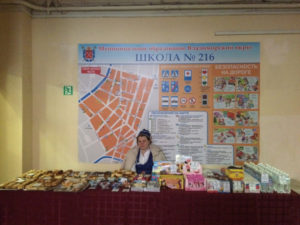
The article was originally published on the author’s personal blog: https://danielkozin.wordpress.com/.

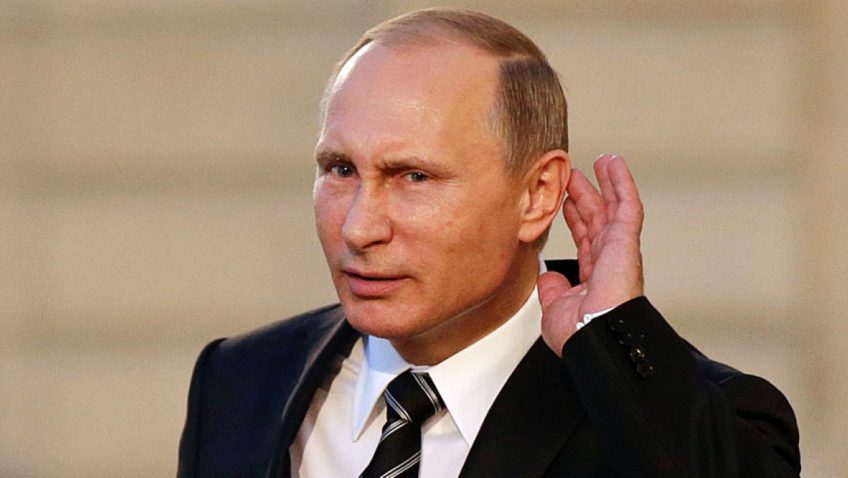
0 comments